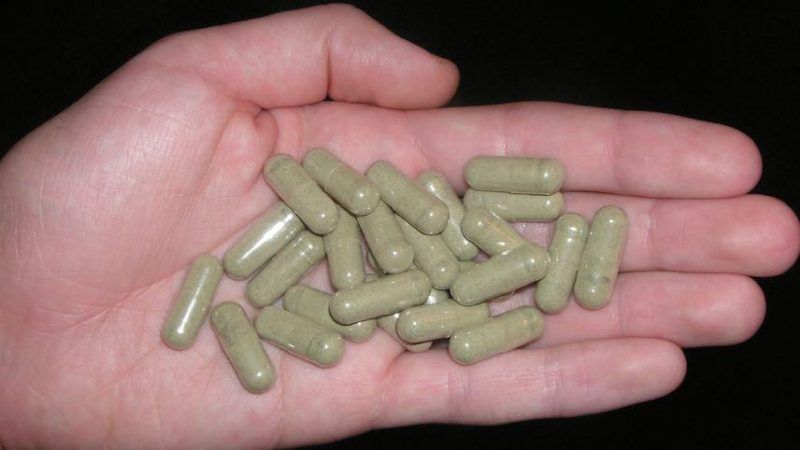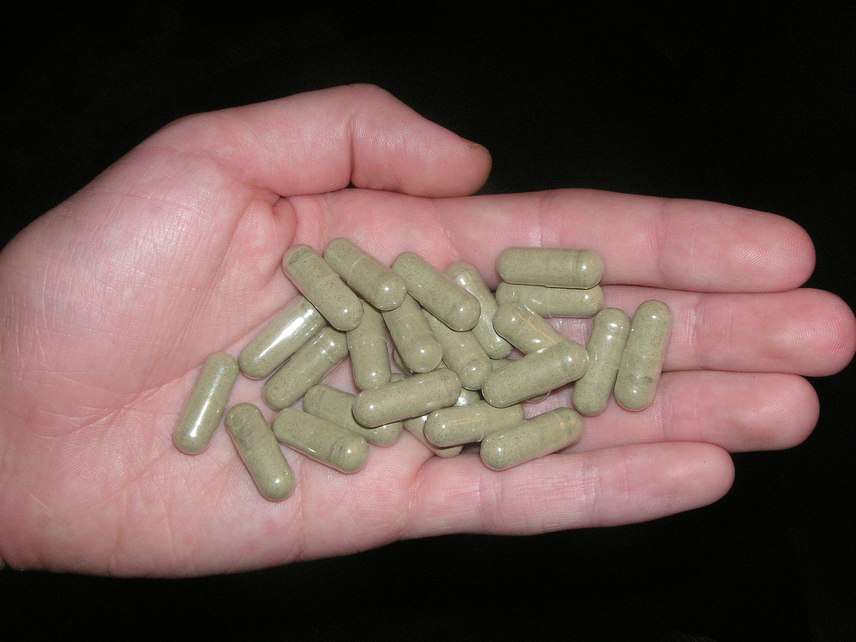The FDA Is Still Trying to Ban Kratom, a Potential Solution to the Opioid Epidemic
"No reliable evidence to support the use of kratom as a treatment for opioid use disorder and significant safety issues exist."


Last week, the Food and Drug Administration announced that the herbal supplement kratom possesses the properties of an opioid, thus escalating the government's effort to slow usage of this alternative pain reliever.
Due to the substance's similar chemical structure to traditional opioids, FDA Commissioner Scott Gottlieb suggested using kratom to treat withdrawals poses a public safety risk:
We have been especially concerned about the use of kratom to treat opioid withdrawal symptoms, as there is no reliable evidence to support the use of kratom as a treatment for opioid use disorder and significant safety issues exist. The FDA stands ready to evaluate evidence that could demonstrate a medicinal purpose for kratom. However, to date, we have received no such submissions and are not aware of any evidence that would meet the agency's standard for approval.
While kratom is currently legal under federal law, this announcement follows the FDA's decision to block the importation of kratom products. In 2016, the Drug Enforcement Administration tried to place kratom in the same class of illegal substances as heroin, but a public outcry—and even some Congressional support for kratom—stopped that motion. Now that the FDA has conducted further medical analysis of kratom, the drug is more likely to be added to the "schedule" of restricted drugs.
The FDA states that the number of deaths associated with kratom use has increased to a total of 44, up from a total of 36 since the FDA's November 2017 report. While the report suggests these cases "underscore the serious and sometimes deadly risks of using kratom," it is clear that the FDA is reaching.
In the majority of deaths that FDA attributes to kratom, subjects ingested multiple substances with known risks, including alcohol. The presence of multiple drugs makes it difficult to determine the role any one of them played.
The FDA cites one case where a 22-year-old man consumed a kratom mixture he ordered online along with an "unknown tablet." This consumption "was followed by an incident, during which the patient fell from a window of the first floor before going to bed" without receiving medical treatment. He was found dead the next morning, and the medical examiner determined that he choked on his vomit while he slept. The man had a history of mental illness, and a prescription drug history that included pipamperone (an antipsychotic used for treating schizophrenia), fluoxetine (an SSRI used to treat anxiety, OCD and depression), queiapine (another antipsychotic), olanzapine (another antipsychotic), etizolam (a benzodiazepine analog), pregabalin (a nerve pain medication often used to treat seizures), lorazepam (a benzodiazepine) and triazolam (a benzodiazepine used to treat severe insomnia that can also cause psychotic episodes). Oh, and he also used kratom. The FDA report does not discuss the extent to which these drugs may have contributed to the man's mental state, instead summarizing his demise with this line: "The patient was found dead in his bed on the morning following the consumption of an herbal mixture."
Another kratom user in the FDA's report died from deep vein thrombosis—a type of blood clot the medical examiner says may have been related to the man suffering from obesity. While there is some research suggesting a correlation between DVT and intravenous opioid use in women, kratom is taken orally and the subject in this report was male. Deep vein thrombosis can also be hereditary, and the man had a long history of medical problems.
As with all the incidents in the FDA's report, these two deaths are associated with kratom only because kratom was found in each man's system. While there is no question that kratom is a drug, the FDA is grasping for a reason to ban this substance. The total number of deaths associated with kratom is dwarfed by those attributed to common over the counter and non-opioid prescription drugs, a point Reason's Jacob Sullum has made before.
Kratom is a popular alternative medicine for those suffering from chronic pain, opioid withdrawal, and mood disorders ranging from depression to PTSD. We don't know exactly why it's good for these ailments, or what the most effective dose is, or even how much is too much. But we have even less evidence that its limited risk merits criminalizing the behavior of hundreds of thousands of American consumers.
Filmmaker Chris Bell talked to Reason TV about his kratom experience last year.


Show Comments (55)